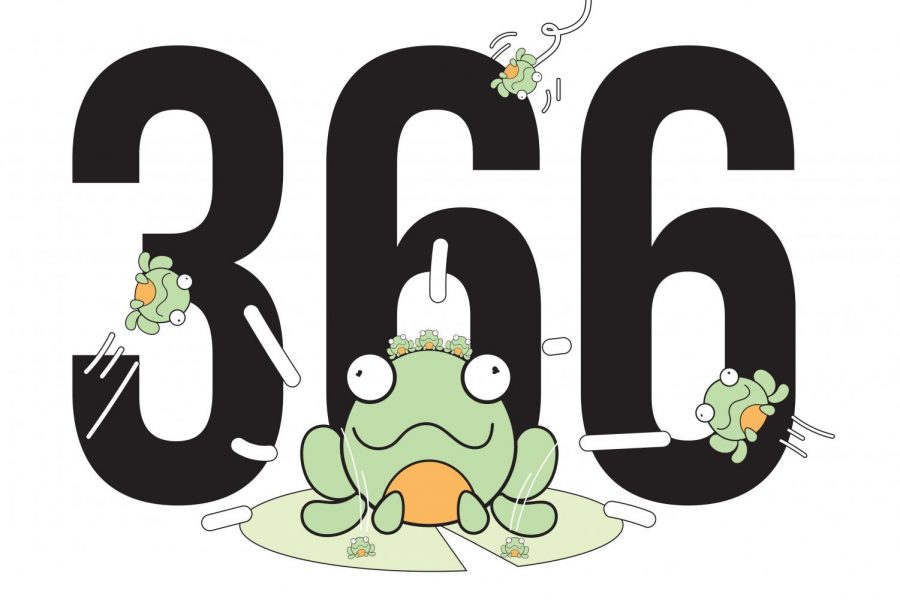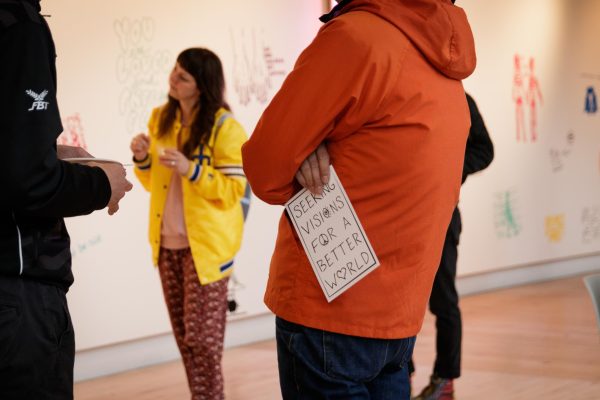What Would You Do With An Extra Day? Leap Day Enter the Chat
What would you do with an extra day? Leap years happen once every four years on February 29 and exists to account for the funky revolution of the Earth that gives us 365.25 days a year, resulting in an extra day tacked on at the end of February to even things out. This extra day at the end of the year’s shortest month is the famous Leap Day.
This year, Pike Place Market held a “Love in the Market” event to stimulate local and regional tourism and to celebrate the rare day. The event featured live music, a scavenger hunt and many other activities. With Leap Day on a Saturday, it was the perfect chance for people to get out and about.
Mille Westness, a 17-year-old exchange student from Norway, visited Pike Place Market on Leap Day. She felt that it was a nice day to be out and explore the market. Westness offered up her own experience of Leap Day from the perspective of a foreign exchange student.
“[Leap Day] is not something that people in Norway celebrate like here in the U.S.,” Westness said. “It’s more like just another day for me. An extra Saturday, to go hang out with friends.”
Alice Wilhelmsson, a 17-year-old exchange student from Sweden, agreed with Westness on the importance of the extra day.
“I think some people find it more important than others,” Wilhelmsson said.
While Wilhelmsson and Westness may represent the average person’s experience of Leap Day, others—specifically, those special few that were born on Leap Day, have a great deal to celebrate. The chances of a person being born on a Leap Day are 1 in 1,461.
Jenna Maeda, a second-year marketing and business analytics major at Seattle University, turned five years old last Saturday. She says having her birthday on Leap Day comes with its own problems— she has only experienced five birthdays in her lifetime.
“Last year I was filling out a form for a job. And it asked, ‘What’s your birthday?’ Very easy, February 29, 2000,” Maeda said. “Then it asked, ‘What day did you turn 18?’ Most people would just write the same thing with a different year. But I didn’t have a birthday when I turned 18.”
The last true birthday she had was in 2016, during her second year of high school. This year, her mother flew out to celebrate her official birthday. During the regular years, some people with Leap Day birthdays choose to celebrate their special day in the days leading up to or after their birthday.
“I always think it’s weird to celebrate on the 28th or 1st of March because I’ve had friends who have those days as their birthday,” Maeda said. “But people will tell me ‘Happy Birthday’ on both days.”
Aside from the minor inconveniences her unconventional birth date brings, Maeda said having a Leap Day birthday does give her some things to look forward to.
“I think 2040 is when I’ll turn 10 so I’ll hit double digits,” Maeda said. “I think that’ll be something fun to celebrate.”
Instances like Leap Day are a time for people to appreciate the time that they have throughout the year. The next Leap year is in 2024 and whether you’re that one person who gets to become one year older, or you just get enjoy an extra day, deciding what to do with this extra 24 hours can be as important or as trivial as a person wants it to be.








![Jordan Ward [REVIEW]](https://seattlespectator.com/wp-content/uploads/2024/04/ward_1-600x400.jpg)

![COWBOY CARTER [REVIEW]](https://seattlespectator.com/wp-content/uploads/2024/04/Screenshot-2024-04-10-at-7.37.52 PM-600x349.png)